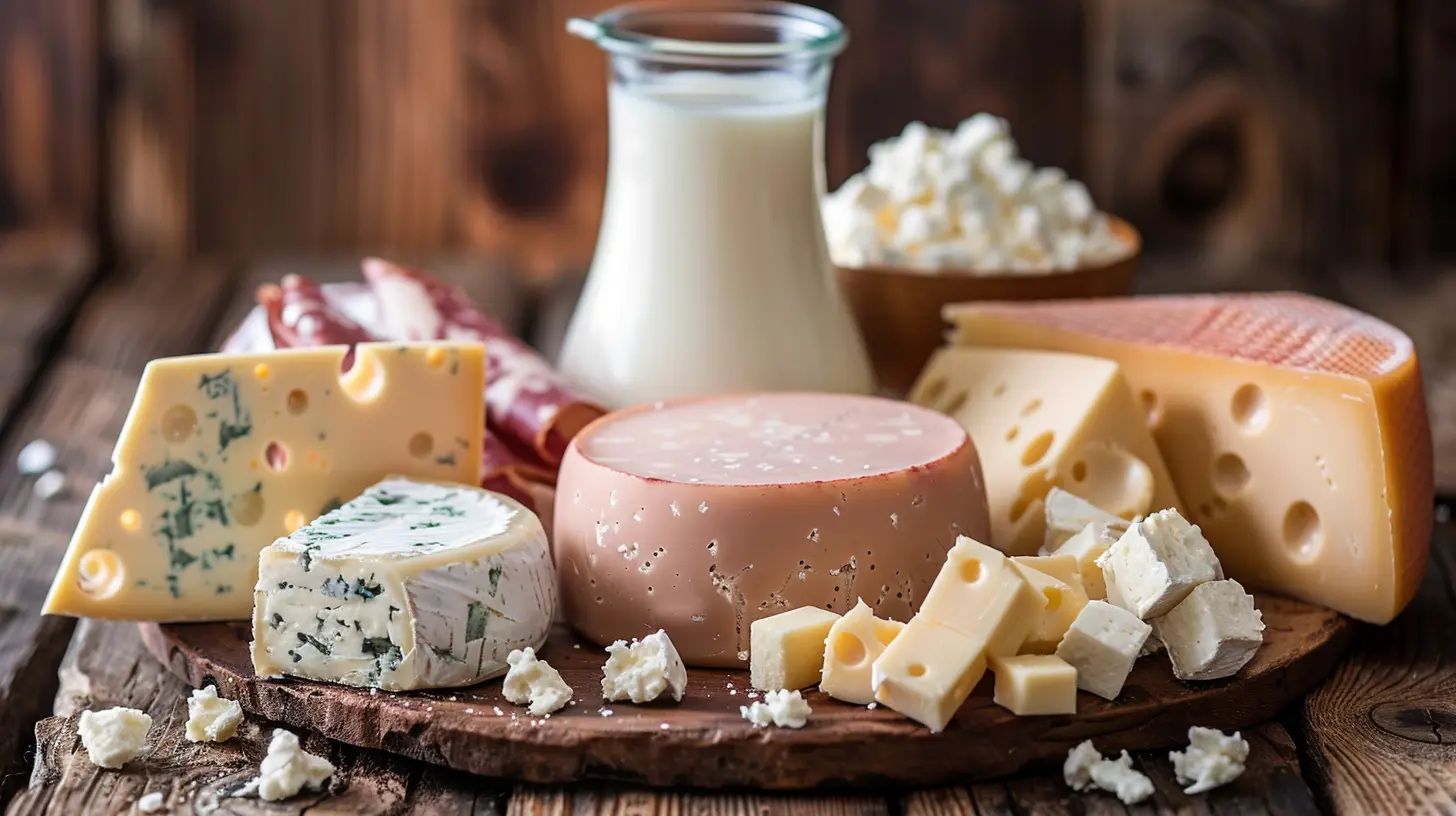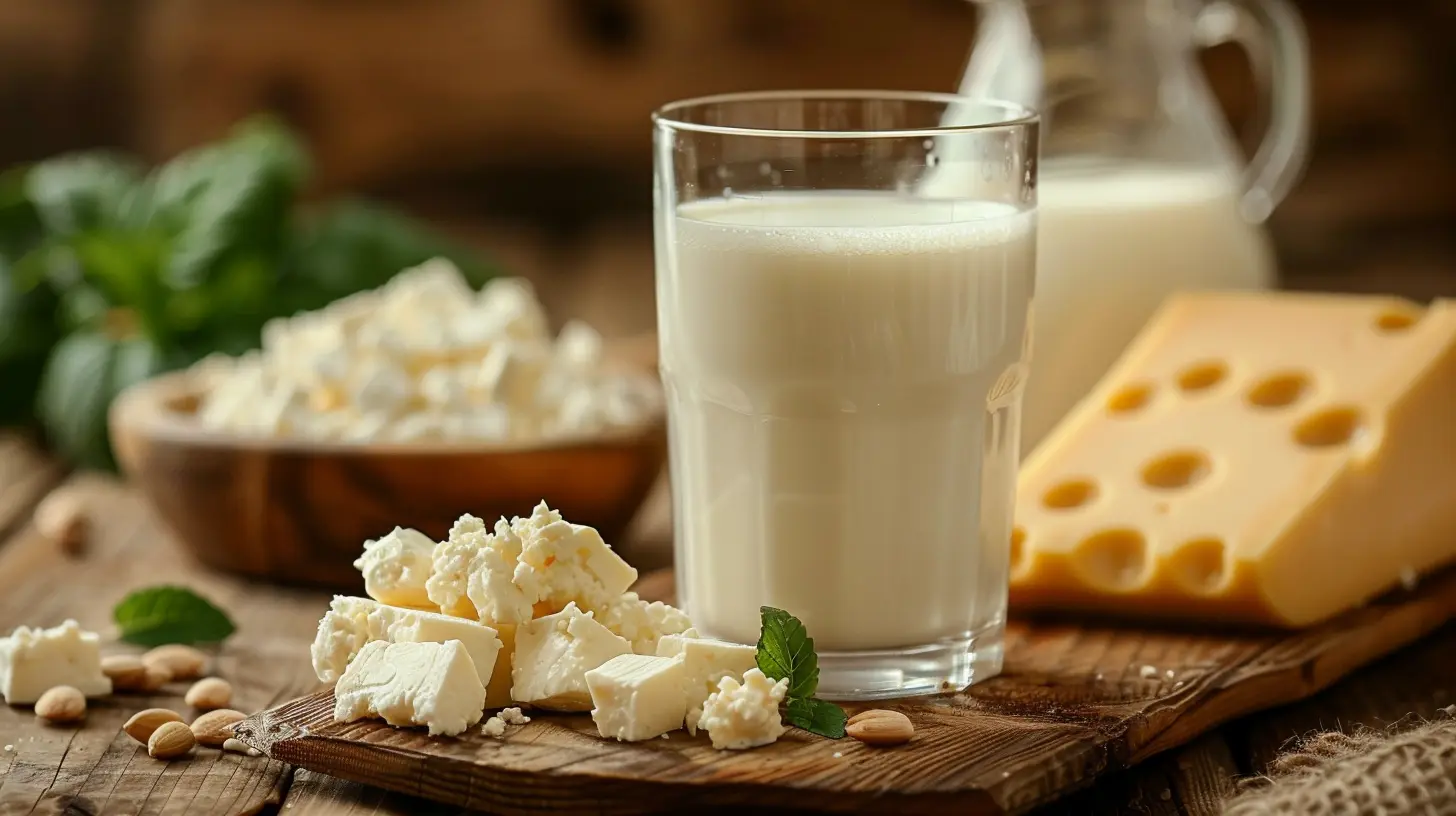Dairy and Cholesterol: To Eat or Not to Eat?
24 September 2025
When it comes to dairy, the debate never seems to end—especially when cholesterol is involved. Some say dairy is a must-have for strong bones, while others argue it’s a cholesterol bomb that harms heart health. So, what’s the real deal? Should you embrace dairy or avoid it altogether?
Let’s break it down and get to the heart of the matter.

Understanding Cholesterol: The Good, the Bad, and the Misunderstood
Before we dive into dairy, let’s talk about cholesterol itself.Cholesterol is a waxy substance found in your blood. It’s often demonized, but the truth is, your body needs cholesterol to build cells, produce hormones, and aid digestion. The catch? Too much of the wrong type can be bad for your heart.
Here’s a quick cheat sheet:
- LDL (Low-Density Lipoprotein): The “bad” cholesterol. High levels can lead to plaque buildup in arteries, increasing the risk of heart disease.
- HDL (High-Density Lipoprotein): The “good” cholesterol. It helps remove excess cholesterol from your bloodstream, reducing heart disease risk.
- Triglycerides: A type of fat in the blood. High levels can also contribute to heart disease.
So, where does dairy fit into all of this? Let’s find out.

Dairy and Cholesterol: Friend or Foe?
For years, full-fat dairy products like cheese, butter, and whole milk were labeled as villains in the cholesterol saga. The reason? They’re high in saturated fat, which was long believed to raise LDL (bad) cholesterol.But recent research has painted a more nuanced picture. Let’s break it down by type of dairy product.
1. Whole Milk vs. Low-Fat or Skim Milk
Milk is one of the most common dairy products, but its effect on cholesterol depends on the type you choose.- Whole Milk: Contains more saturated fat, which was traditionally linked to higher LDL cholesterol.
- Low-Fat/Skim Milk: Has little to no saturated fat, making it a “safer” option for those watching their cholesterol.
However, new studies suggest that whole milk may not be as harmful as we once thought. Some research even shows that full-fat dairy could increase HDL (good) cholesterol, which helps counteract the negative effects of LDL.
2. Cheese: Heart-Healthy or Heart Hazard?
Cheese has gotten a bad rap due to its high saturated fat content, but does that mean it’s off-limits? Not exactly.Studies indicate that cheese doesn’t raise LDL cholesterol as much as other high-saturated-fat foods like red meat. Why? Some experts believe that the unique composition of dairy fats, calcium, and probiotics in cheese may help balance out its effects.
However, moderation is key—opting for smaller portions or low-fat versions can help keep cholesterol levels in check.
3. Butter: The Most Controversial Dairy Product
Butter, made almost entirely of fat, is arguably the most controversial dairy product when it comes to cholesterol. It’s loaded with saturated fat, which has been linked to higher LDL cholesterol.That said, recent research questions whether saturated fat is as harmful as we once thought. Some experts argue that context matters—consuming butter alongside a diet rich in whole foods might not be as bad as eating it alongside processed junk.
Still, if you have high cholesterol, limiting butter and swapping it for olive oil or avocado may be a smarter choice.
4. Yogurt: A Cholesterol-Friendly Choice?
Yogurt, particularly Greek yogurt and probiotic-rich varieties, may actually help with cholesterol management. Studies suggest that probiotics can help reduce LDL cholesterol while boosting HDL, making yogurt a heart-friendly choice.However, watch out for flavored yogurts loaded with added sugar, as excess sugar can negatively impact heart health.

The Saturated Fat Controversy: Should You Really Worry?
For decades, guidelines preached that saturated fat raises cholesterol, making dairy a prime suspect in heart disease. But recent studies challenge this narrative.Research suggests that not all saturated fats are created equal. Dairy-derived saturated fats may have a neutral or even beneficial effect on cholesterol levels compared to those from processed and fried foods.
One large-scale study even found that people who consumed more full-fat dairy had a lower risk of heart disease and stroke. Shocking, right?

So, Should You Eat Dairy or Avoid It?
The answer isn’t black and white. Dairy affects people differently, depending on factors like genetic predisposition, overall diet, and lifestyle.Here’s how to make the best choice for your health:
1. Consider Your Cholesterol Levels
If you have high LDL cholesterol, you might want to limit butter and full-fat dairy, opting for low-fat versions instead.2. Pay Attention to Quality
Not all dairy products are created equal. Grass-fed, organic, and minimally processed dairy may be better for your health than highly processed alternatives.3. Focus on the Big Picture
Dairy is just one piece of the puzzle. A balanced diet rich in fruits, vegetables, whole grains, and healthy fats plays a more significant role in heart health than eliminating dairy alone.4. Listen to Your Body
Some people tolerate dairy well, while others experience bloating, acne, or inflammation from it. Pay attention to how your body reacts and adjust accordingly.Heart-Healthy Dairy Alternatives
Not a fan of dairy or looking to cut back? Here are some cholesterol-friendly alternatives:- Almond milk – Naturally low in saturated fat
- Coconut yogurt – A dairy-free option with probiotic benefits
- Nutritional yeast – A cheesy flavor without the saturated fat
- Avocado butter – A heart-healthy swap for traditional butter
- Cashew cheese – A delicious plant-based cheese alternative
Final Verdict: Balance Is Key
Dairy and cholesterol have a complicated relationship, but the idea that all dairy is bad for heart health is outdated. Moderation and quality matter more than outright avoidance.Instead of fearing dairy, consider how it fits into your overall diet and health goals. If you enjoy it and it doesn’t negatively impact you, there’s no reason to banish it completely.
At the end of the day, a heart-healthy diet is about balance—not restriction.
all images in this post were generated using AI tools
Category:
CholesterolAuthor:

Jackson Mahoney
Discussion
rate this article
1 comments
Zevin Shaffer
In the dance of dairy and heart's delight, Balancing cholesterol, a choice in sight. Savor the richness, tread with care, For health's sweet whisper lingers in the air.
October 8, 2025 at 3:41 AM

Jackson Mahoney
Thank you for your poetic insight! It's essential to enjoy dairy mindfully while considering our cholesterol health. Balance is key!


